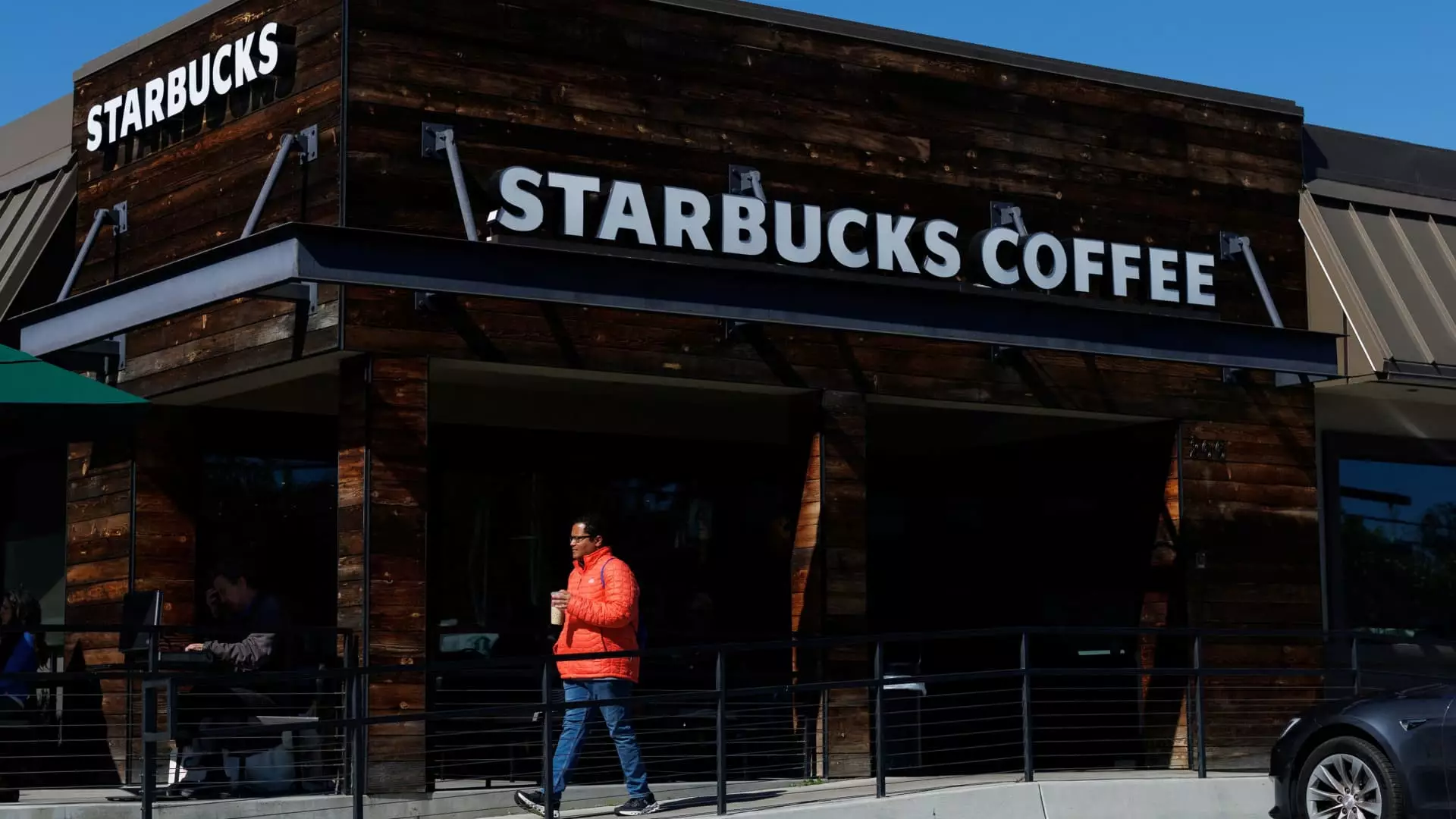The landscape of the restaurant industry has never been more precarious, with stocks taking a steep dive, largely attributed to President Trump’s recent tariff announcements. While the direct effects of these tariffs on restaurant companies might seem manageable, the ripple effects will likely trigger inflation that puts increasing stress on consumer spending. Economists argue that such financial strain could push many families into a recession, a daunting prospect as restaurant chains struggle to maintain their revenues. Analysts, including UBS’s Dennis Geiger, warn that the real threat is not the tariffs themselves, but rather the consumer behavior shift they provoke—one driven by fear and financial caution.
High Stakes and Higher Prices
Investors are reacting with caution, and understandably so. The immediate aftermath saw companies like Starbucks suffer losses exceeding 2% as market fears clouded its future prospects. What’s fascinating—and troubling—is that consumers face a dual blow: higher prices at the coffee shop and budget constraints that keep them from indulging as they once did. The repercussions of tariffs extend far beyond the coffee beans imported from countries like Vietnam and Brazil. The implications are vast, impacting not only prices but also the choices consumers make when dining out. In a market increasingly reliant on margins and consumer loyalty, such economic turbulence could knock the feet out from under even the most robust brands.
Consumer Behavior in Crisis
Interestingly, while fast-food chains are typically seen as recession-proof, the current economic conditions are subtly shifting perceptions. Last year, we observed a concerning trend: consumers were cutting back on even the most affordable dining options. It’s not mere speculation; last year’s figures revealed a notable decline in visits to quick-service establishments, particularly by low-income consumers. The dual twists of economic uncertainty and rising prices deter the very customer base that these businesses rely upon for survival. As a result, McDonald’s, Yum Brands, and others are finding themselves in a precarious position, traditionally insulated from downturns yet increasingly vulnerable in a shifting market landscape.
Global Dependencies and Political Backlash
One cannot ignore the geopolitical implications tied to the restaurant industry’s struggles. Starbucks, for example, stands at the brink of a precarious situation where international sales could decline due to rising anti-American sentiments, particularly in expansive markets like China. Historically, reliance on global supply chains has allowed brands like Starbucks to thrive, yet they now navigate a political battleground where their very existence is under threat. As political climates shift across the world, these global giants are exposed to the harsh realities of market dynamics influenced by nationalistic trends.
The Emerging Victors Amidst the Wreckage
However, amidst this turmoil, there are glimmers of hope. Companies like Dutch Bros. and Cava have recently shown robust stock performances, bucking the overall market sentiment. This uptick begs the question: are these brands tapping into consumer demands more intelligently than their counterparts? The answer may lie in their branding strategies, affordability, and the ability to connect with a more conscious consumer base looking for value beyond just price. As dining preferences evolve and new players emerge, those who adapt swiftly will likely emerge out of this crisis unscathed, if not buoyed by it.
Adapting to a New Normal
The restaurant industry’s trajectory is riddled with uncertainty as it grapples with economic pressures and shifting consumer behaviors. The conversation must evolve from merely assessing the direct impact of tariffs to understanding a more nuanced picture regarding purchasing habits and the socio-political ramifications at play. As brands navigate turbulent waters, it is those willing to innovate and engage authentically with customers who will not only endure but potentially thrive in the chaotic aftermath of economic instability. The stakes remain high, and adaptability will be the cornerstone of success—or failure—as our dining habits reshuffle in response to external pressures.

